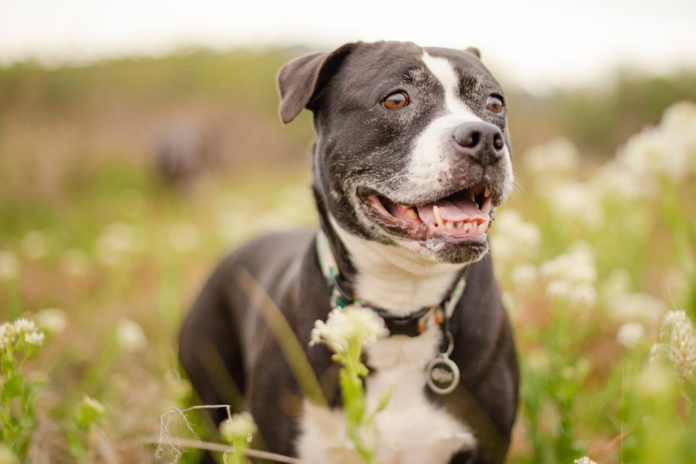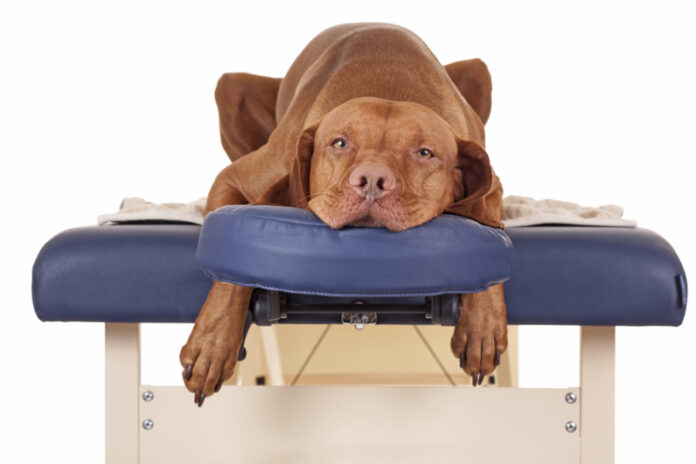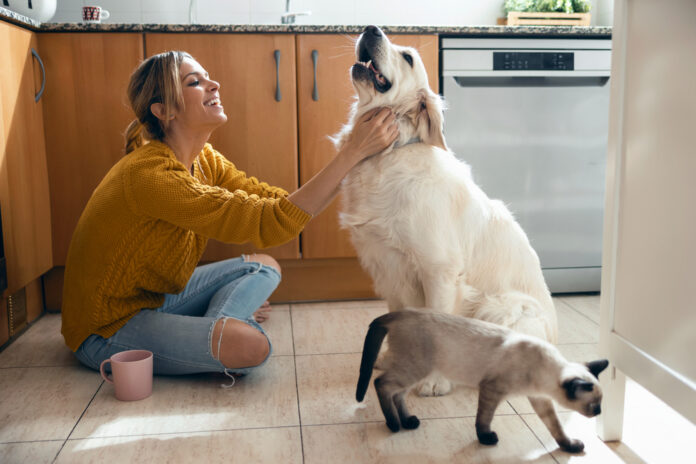8 steps to keeping your senior dog young

A wholistic approach ranging from diet and exercise to mental stimulation and immune support can help keep your senior dog young, happy and healthy.
Our dogs are our best friends, so as they enter their golden years, we want to make sure we’re providing them with the best care and quality of life we can. Rather than fearing the changes that old age brings upon our canine companions, we can transform this chapter of their lives into a celebration of healthy aging. These eight holistic tips will help keep your own senior dog young.
1. Start with a healthy diet
It should go without saying that a healthy high quality diet made from whole food ingredients, without any cheap fillers or additives, is vital to your dog’s well-being, no matter what his age.
2. Make sure he’s exercising
Some people think that senior dogs should not be walked, but some exercise every day is important to their physical and mental well-being. A healthy dog should receive two 30-minute walks a day, every day of the week. If your dog is arthritic, however, or has other health issues, you can reduce the length of his walks from 30 to 15 minutes; foregoing exercise altogether will only increase joint stiffness. A body in motion stays in motion.
3. Take your senior dog to the vet for regular check-ups
As your dog gets older, it’s more important than ever to have him checked over regularly by your veterinarian. This helps ensure that any potential health problems are caught before they become serious issues. Many vets recommend that senior dogs be checked twice a year, while canines with existing health problems may need more frequent checkups.
Different shapes, textures and sounds keep him engaged and curious about his surroundings.
4. Engage him in play, training and tricks
Who says you can’t teach an old dog new tricks? Keep his mind sharp by practicing his training cues on a regular basis, and try teaching him some new cues and tricks. Just be sure to choose less rigorous activities that take his mobility levels into account – e.g. no high jumping! Teaching him new things stimulates his mind and encourages him to be observant, while encouraging his brain to work on retention. Another good way to keep his mind astute is to switch up his toys. Different shapes, textures and sounds keep him engaged and curious about his surroundings. An agile engaged mind makes for a happy fulfilled dog.
5. Keep his immune system strong
As your dog ages, it’s crucial that his immune system remains strong, since that is what determines his ability to fight off many diseases. There are many ways to do this, from maintaining a healthy diet and exercise level to giving him certain supplements and minimizing his exposure to vaccines and environmental toxins. For another strategy, add a spoonful of coconut, mixed with a dash of cinnamon and a couple drops of honey, to your dog’s food once a week. Not only will this combination make for a tasty treat but it can also serve as a natural immune booster, due to the ingredients’ antibacterial properties.
6. Consider acupuncture
This ancient modality can be extremely beneficial for increasing mobility and alleviating pain in dogs suffering from sprains, arthritis or other joint problems. It can also help with other age-related conditions, such as anxiety, appetite loss, and even cancer. Schedule a consultation with a practitioner who is trained in animal acupuncture to determine if your dog is a good candidate for this therapy.
7. Support his digestion
Older dogs are often more prone to digestive upsets than their younger counterparts. While it’s important to consult your vet if your dog shows persistent signs of tummy problems, such as vomiting, constipation, diarrhea or loss of appetite, you can use home remedies for occasional problems. One of the best remedies for curing an upset digestive system in senior dogs (or any dogs for that matter) is canned pumpkin. A scoop added to your dog’s food is great at promoting digestive health and healing an upset tummy, and can help with both constipation and diarrhea.

8. Listen to your senior dog
Dogs are always communicating with us. When my dog wants a walk, he comes over and stands next to me, sneezing while wagging his tail. When on a walk, if something prickly gets stuck between his toes, he plants himself and looks up at me, letting me know something is bothering him. As a dog parent, it is your responsibility to be observant with your senior, because no one knows him better than you do. By listening to and observing your dog, you’ll be the first to know if something’s not quite right and needs attention, either from you or your vet.
One of the best ways to keep your dog young is by letting him know he is significant and well-loved. Follow the steps in this article to keep him as healthy and active as possible, and stay tuned in to what he is trying to tell you. Finally, regardless of how old he is, treat him as young as he behaves, and you’ll have a happy, active dog!




